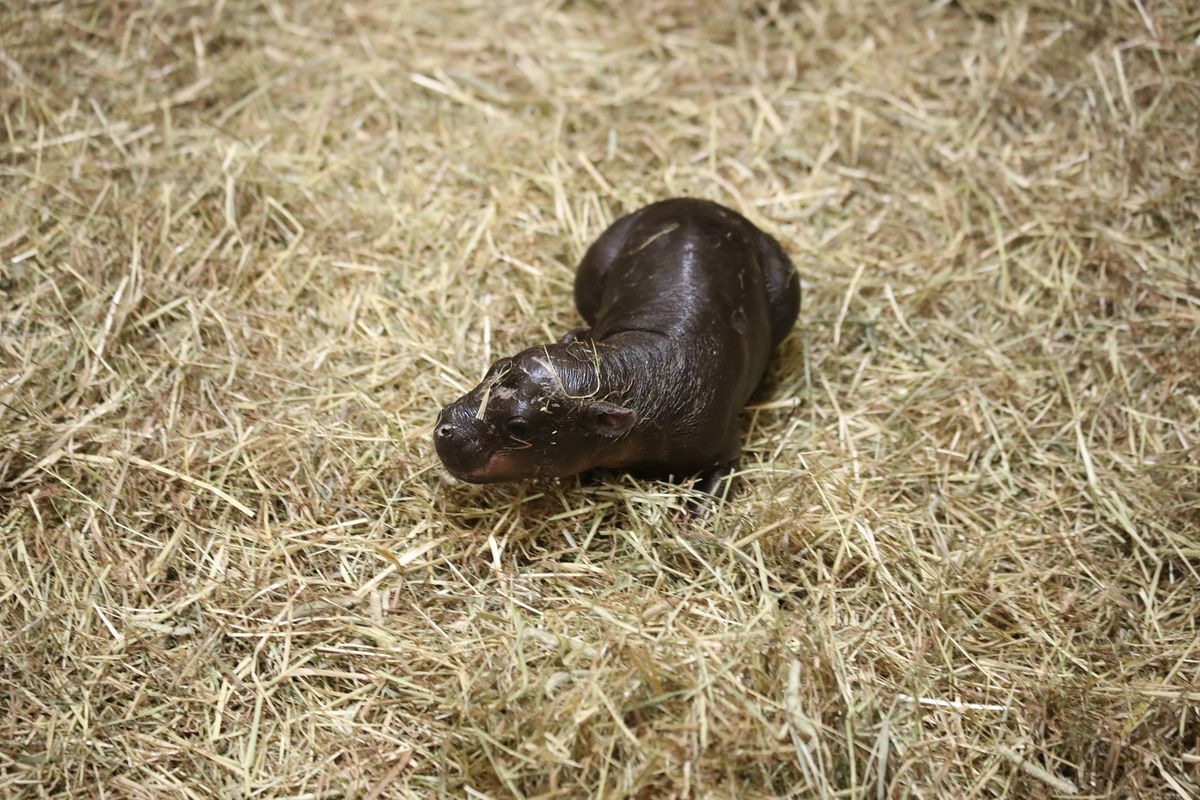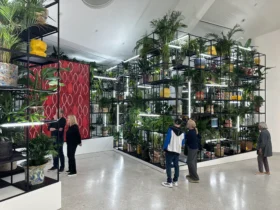:focal(960x640:961x641)/https://tf-cmsv2-smithsonianmag-media.s3.amazonaws.com/filer_public/18/bb/18bbe834-6271-432a-b96b-354219ce5c54/haggis_hippo.jpg)
Haggis joins Moo Deng as a popular ambassador for the endangered pygmy hippo species.
Edinburgh Zoo
Move over, Pesto and Moo Deng – a new swoon-worthy baby animal just hit the internet.
Last week, Scotland’s Edinburgh Zoo welcomed a baby pygmy hippopotamus named Haggis. The little calf was born on October 30 to parents Gloria and Otto.
Haggis is happy and healthy, but she will remain out of public view for the foreseeable future while staff keep a close eye on her. But even though the pygmy hippo house is closed, fans can continue to ogle baby Haggis through photos and videos shared online.
Haggis was born on the heels of Moo Deng, a pygmy hippo calf at Thailand’s Khao Kheow Open Zoo, which went viral in September. Born in July, Moo Deng became so popular in real life that visitors were reportedly limited to being alone five minutes with her on Saturday and Sunday earlier this fall.
Both pygmy hippos are named after food. Haggisthe national dish of Scotland, is a savory pudding made from animal organs, cooked in the stomach of a sheep. Moo Deng, meanwhile, roughly translates to “bouncy pork.” (Coincidentally, the enormous baby king penguin that went viral is also named after food — in tribute to the Italian condiment made from basil, Parmesan cheese, pine nuts, garlic and olive oil, the enormous bird is called Pesto.)
As Haggis’ birth was announced, Edinburgh Zoo playfully tried to stoke a rivalry between the two little hippos. On social media, the zoo wrote “Moo Deng? Who deng? Meet… Haggis.” And on the zoo’s website the birth announcement was titled: “Moo Deng Who?”
Later, Edinburgh Zoo issued a lighthearted ‘notes app apology’ X: “It was wrong to pit Haggis and Moo Deng against each other. There is room in this world for two beautiful pygmy hippo divas and we should celebrate them all.
Haggis and Moo Deng are not only cute, but also rare. Pygmy hippos are endangered; it is estimated that there are between 2,000 and 2,500 specimens left in the wild. International Union for the Conservation of Nature. They live in Ivory Coast, Guinea, Liberia and Sierra Leone in West Africa, but are confronted by many threatsincluding poaching and habitat loss.
Zoos around the world are collaborating on breeding programs to increase the species’ numbers. Last week, the Houston Zoo announced that it had welcomed a 4.5-year-old, 477-pound male pygmy hippopotamus from San Francisco. The youngster was transferred with the name Akobi based on breeding advice from the Association of Zoos and Aquariums.
Baby Haggis’ older sister, Amara, was sent to London Zoo last year through a similar breeding program in Europe. She was born at Edinburgh Zoo in 2021, but was later paired with a hippo ‘hubby’ named Thug in London.
Haggis could also one day help support captive breeding programs. But in the meantime, she will draw even more attention to her beleaguered species.
“It’s great to have our own little ambassador here in Edinburgh, who can connect with our visitors and help raise awareness of the challenges the species faces in the wild,” said Jonny Appleyard, ungulate team leader the Edinburgh Zoo, in one statement.
The pygmy hippopotamus (Choeropsis liberiensis) is a rarer and smaller relative of the common hippopotamus (Hippopotamus amphibius). Although they may look similar, the two species have some distinct differences. The most obvious is their size: as their name suggests, pygmies are much smaller and weigh in between 350 to 600 pounds and 30 to 39 centimeters long. The common hippopotamusMeanwhile, it weighs at least 2,800 pounds (with the largest males weighing nearly 10,000 pounds) and stands 5 to 5 feet tall.
Pygmies also tend to be solitary and more reclusive, while common hippos are social creatures that live in groups. Both species are semi-aquatic, but pygmy hippos are better adapted for spending time on land.













Leave a Reply